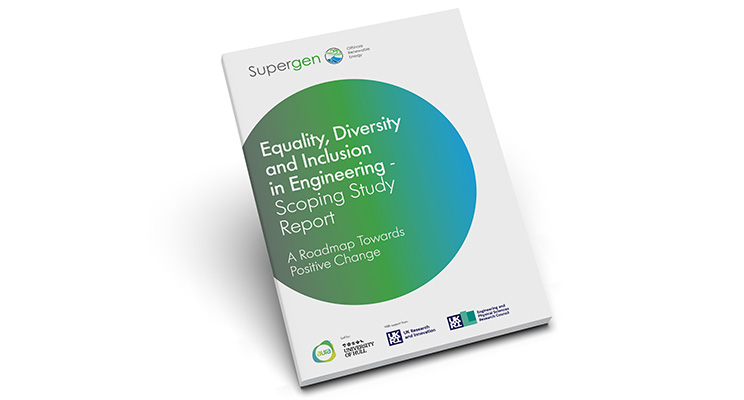
New report calls for greater collaboration between schools, universities, business and government to improve equality, diversity and inclusion in the engineering sector.
The Supergen Offshore Renewable Energy (ORE) Hub has joined with Aura, an initiative from the University of Hull, to produce a scoping study which determines the current state of equality, diversity and inclusion (EDI) in engineering, with a focus on the offshore renewable energy industry and academia.
The report, launched today, 29 October 2020, at RenewableUK’s Global Offshore Wind 2020 conference, outlines an action plan which focusses on short, medium and longer term initiatives to help improve EDI in the engineering sector, considering each stage of education and career development.
Some of the key findings from the report include:
- 51% of the population of primary school STEM education is female, however, significant numbers are lost at each stage of education and career progression meaning that only around 5% of senior engineering roles are held by women.
- Only 7.8% of professional engineers are from Black Asian and Minority Ethnic (BAME) backgrounds.
- There are many groups working towards the goal of improving EDI in engineering but there is a lack of collaboration. Groups and organisations need to cooperate better to work towards overall common objectives.
- There is generally a focus on ‘diversity’ and a lack of attention given to ‘equality’ and ‘inclusion’. Examination of cultural factors is needed to improve these two areas in organisations.
- A focus on intersectionality is important and a ‘one size fits all’ approach will not work in the long term.
Professor James Gilbert, Co-Director of the Supergen ORE Hub – lead for EDI, and Professor of Engineering at the University of Hull added:
“Increasing Equality, Diversity and Inclusion can bring significant benefits to those organisations who embrace it but there are challenges in understanding how to bring about sustainable change. Long term change needs organisations, from schools and colleges to universities and industry to work together for a common purpose. This report identifies short, medium and long term actions to help bring about positive change through working together.”
Louise Smith, Director of Aura (led by the University of Hull) said:
“We are delighted to have facilitated this report, working closely with the Supergen ORE Hub and the industry. The study sets out a practical set of initiatives for academia and industry to really make a positive change and ensure more women and BAME engineers and scientists play key roles in this sector. Our role in the Humber Cluster is to act as a catalyst for collaboration and innovation in the renewable energy sector and particularly to deliver the commitments set out in the Offshore Wind Sector Deal. We are a new industry and have the opportunity to really do things differently. I hope we can work together to really change things and meet the challenge ahead.”
Professor Deborah Greaves OBE, Director of the Supergen ORE Hub and Head of the School of Engineering, Computing and Mathematics at the University of Plymouth, said:
“EDI sits at the very centre of the Supergen ORE Hub with a work stream dedicated to ensuring that EDI becomes the foundation to the way we work in renewable energy. I am delighted the Supergen ORE Hub has been able to fund this report, and work with Aura to work towards real long-term change in diversity, participation, and culture in the renewable energy sector.”
This scoping report was researched and written Stefi McMaster, a PhD student in Psychology and part of the Centre for Human Factors at the University of Hull. The report has been funded by the Supergen ORE Hub and led by Aura at University of Hull, with support from UK Research and Innovation (UKRI) and the Engineering and Physical Sciences Research Council (EPSRC).
